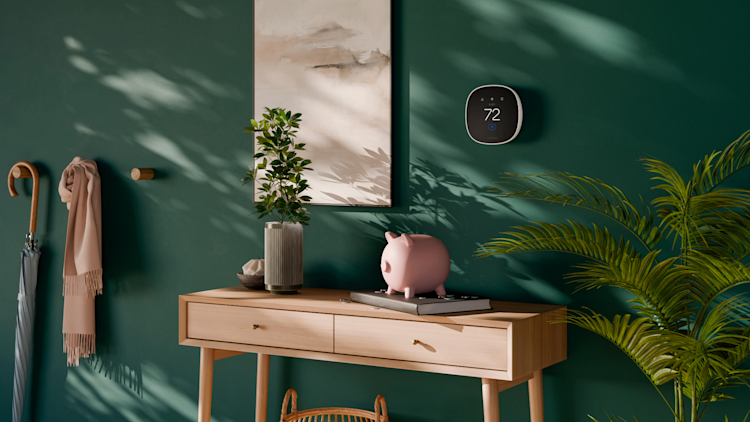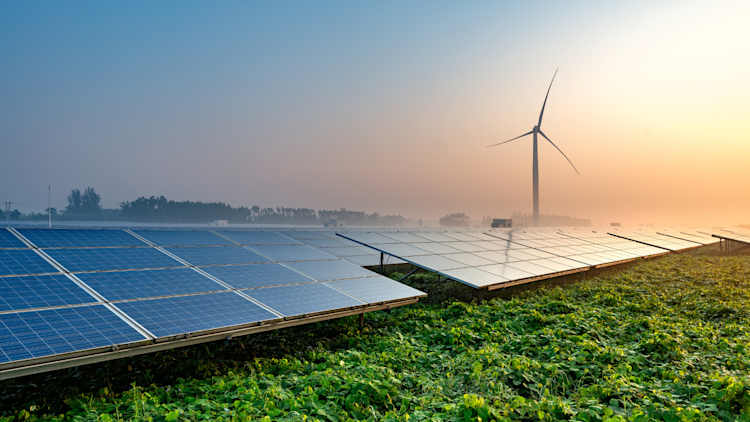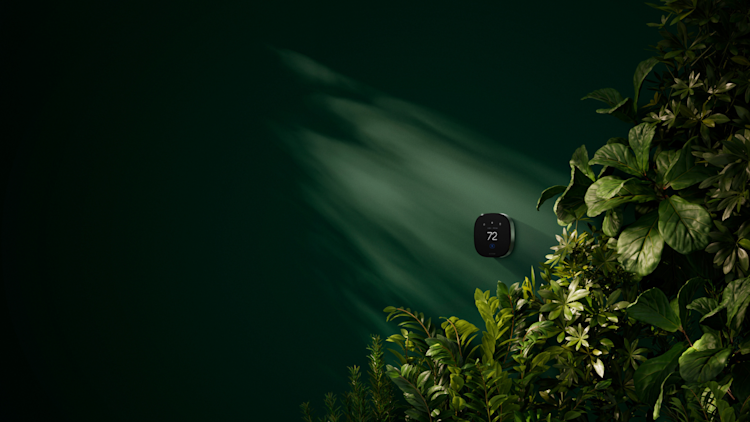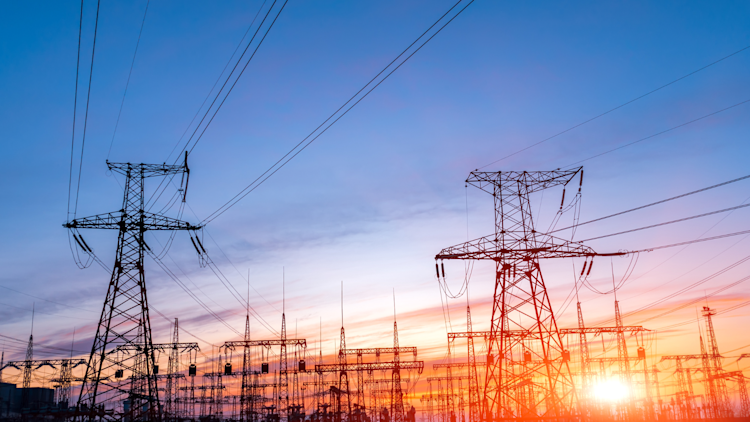How Connecting With Nature Can Support Your Mental Health
We spoke to a registered psychotherapist to learn more about the benefits of spending time in nature.
by ecobee on 04/13/2023 in Better Planet
6 min read

Sometimes, there is no better reset button than spending time in nature and taking a moment to experience the environment we have around us.
In honor of Earth Month, we’re taking a closer look at ecotherapy and how you can incorporate it in your own life.
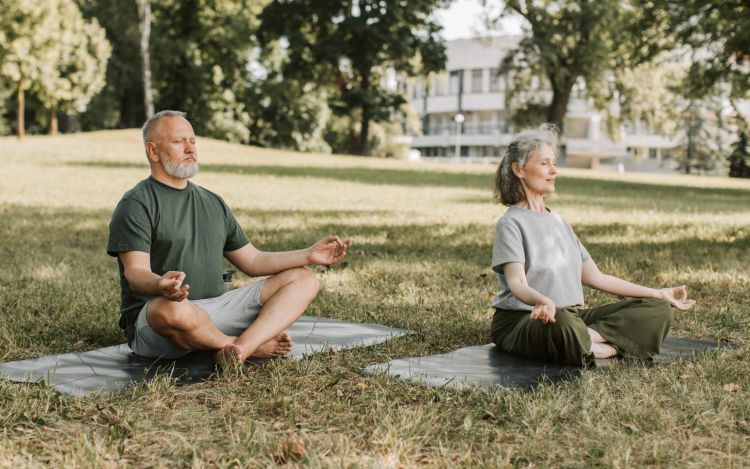
What is ecotherapy?
Ecominds, an initiative from the UK-based mental health organization Mind, conducted a study where individuals participated in ecotherapy. According to Mind, ecotherapy is “a formal type of therapeutic treatment which involves doing outdoor activities in nature.” Participants were surveyed before and after the experiment, and Ecominds found an average of 17% increase in wellbeing. Additionally, 76% of participants experienced mood improvements, and 81% felt more connected to their environment and community.
So how you can introduce ecotherapy into your everyday life?
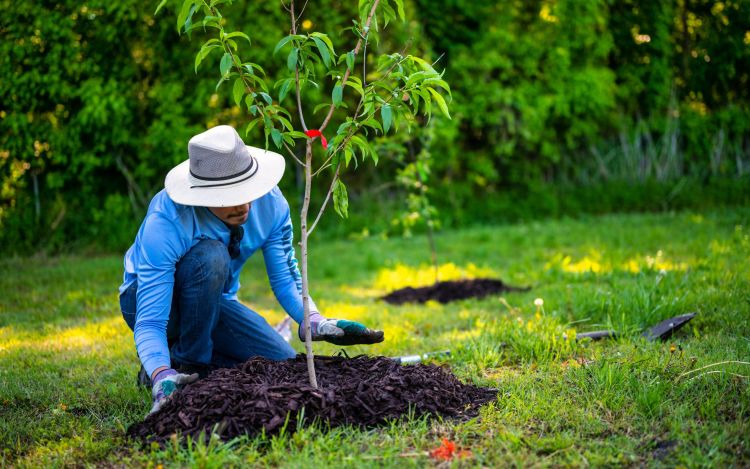
Tips From an Eco-therapist
Eric Windhorst is a registered psychotherapist in Canada who is “passionate about personal growth and our planetary home.” Since starting his practice, Windhorst has seen an increase in individuals aware of, and struggling with, climate distress and eco-anxiety.
Eco-anxiety is defined by the American Psychology Association as “the chronic fear of environmental cataclysm that comes from observing the seemingly irrevocable impact of climate change and the associated concern for one's future and that of next generations”. Humans are rooted in our connection to the natural environment, which helps explain why we experience eco-anxiety.
Windhorst states that most approaches to therapy are human-centric — they tend to artificially extract humans from the wider natural world in which they are embedded. “We fail to recognize that humans are part of a much larger ecological system, a system that nourishes us, shelters us, and shapes us,” he says.
Eric views ecotherapy as a method of cultivating a personal relationship with nature. He describes humans as having an inner nature (a true self or spirit) and being embedded in our outer nature (the wider, more-than-human world). According to Eric, ecotherapy is about creating connections with both inner nature and outer nature to promote healing (for both humans and the more-than-human world).
“When we lose touch with our inner nature through external factors like societal expectations and generational traumas, our bodies express this through symptoms such as anxiety or depression. One powerful way to bring us back to our inner nature – to promote healing and growth – is by connecting with outer nature.”

Here are some easy ways to practice ecotherapy:
1) Be mindful in nature.
Being mindful is learning how to be fully present to one’s experience—both inner (i.e., thoughts, sensations, emotions, etc.) and outer (i.e., sights, sounds, smells, etc.). Go to a natural place and be in the present moment. Observe the natural world around you. What do you see? What do you hear? What relationships and connections do you notice? You may find that tuning into outer nature helps you to relax and leads you to reflect on your innermost self.
2) Cultivate gratitude and give back.
Nature freely gives each one of us many gifts. Cultivating a gratitude practice promotes well-being and helps us to realize just how dependent we are on wider ecology. Supporting nature by giving back is a great way to reciprocate this care. For example, you could donate money to an environmental organization or volunteer to help with a local ecological restoration project. Even the simple act of picking up litter is a way giving back. This is a great way to live out the popular phrase “heal the land, and the land will heal you.”
3) Adopt houseplants.
Adding houseplants to your home is a great way to connect with nature and liven up your indoor environment. Houseplants have been shown to provide many benefits to humans, including improving indoor air quality and promoting relaxation. Carefully tending to a house plant and watching it grow provides a sense of connection and meaning and fulfillment.
Read our post to learn how to create the perfect environment for your houseplants.
4) Add nature soundscapes to your playlist.
Listening to nature sounds has been scientifically proven to relax us, boost our moods, and decrease stress. Whether the soundscape is a rainforest, a meadow, or waves lapping on the shore, each can promote nature connection and well-being.
5) Engage with nature-based art, poetry, and film.
Engaging with nature-based art and poetry can be deeply healing and inspiring. Poets such as David Whyte and Mary Oliver tie ecological principles to the human condition, helping us better understand who we are and where we might need to go. Poets and artists also draw our attention to the current plight of the natural world, help us open our hearts to suffering, and inspire us to take meaningful, pro-environmental action. Nature documentaries can also teach us about the rare plants and animals around the world and deepen our appreciation.
The best way to describe ecotherapy is as a relationship. Just like friendships, our relationship with nature needs to be maintained with attention and effort. The key is to open your heart to nature, see that we are not two different systems, and discover the beauty within interconnection.
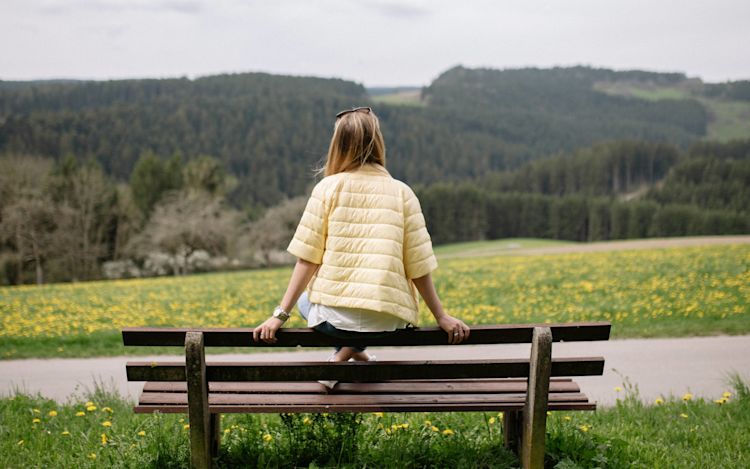
Change your Habits, Change your Mindset
Studies have proven that those who spend time in nature will subconsciously make more planet-positive decisions and live greener lifestyles. This once again demonstrates the crucial ties between humans and the Earth.
Apart from ecotherapy, here are some more easy tips to help ease your eco-anxiety:
1) Look into Energy Star-certified products.
This internationally recognized symbol is only attributed to products with the highest efficiency, meaning they require the least energy and produce minimal greenhouse gas emissions. ecobee's Energy Star-certified smart thermostats automate your energy savings without compromising your comfort and help simplify your life.
2) Enroll in your local utility’s energy programs.
Many utility companies offer incentives when you participate in their energy-saving programs to reduce stress on your local power grid when demand is highest. Enrolling in these programs means when an event is called, the energy you are consuming will shift to decrease your personal strain on the grid, reducing the risk of a blackout.
3) Use eco-friendly products.
When possible, choose products created from organic and recycled materials. Air-friendly products such as eco-paint and eco cleaning products, can help reduce the amount of toxins (such as volatile organic compounds or VOCs) in your home. ecobee's Smart Thermostat Premium's built-in air quality monitor can also help you keep an eye on VOC and estimated carbon dioxide (CO2) levels in your home, and provide tips on how to improve it, like opening a window or replacing your air filter.

When we connect back to our nature, we can get an increased sense of meaning and purpose in our lives, and significantly calm our nervous system. We can experience effects such as increased happiness and productivity, sparked creativity, and sharpened memory.
Windhorst tells us, “When we are open to the world around us, and we are paying attention, we are constantly getting messages that nature loves us, support us, and wants us to live in harmony.”
To learn more, check out our posts on the Top Reasons to Have Hope for the Future in 2023, Five Environmental Documentaries to Watch Now, and How to Practice Ecotourism When Travelling.
Did you enjoy this article?
Thanks for letting us know!

